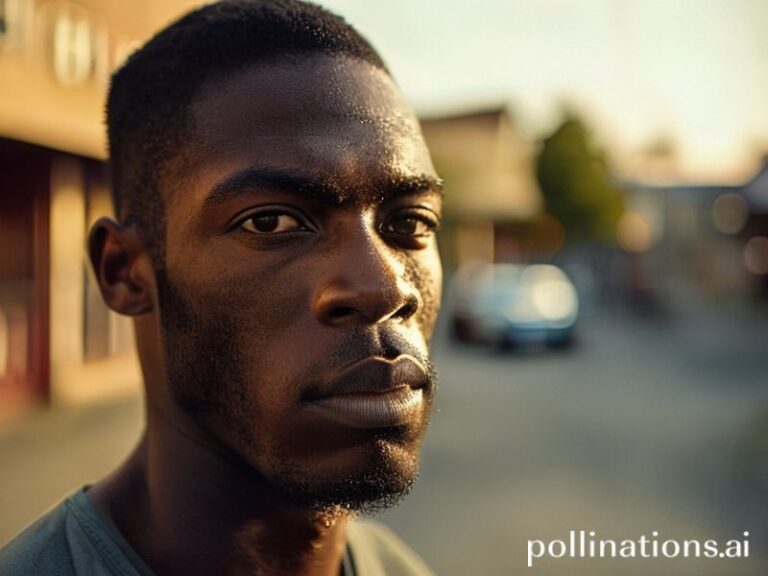The Great UAE Visa Freeze: When Dubai’s Velvet Rope Turned Into a Global Game of Musical Chairs
Dubai, the city that built the world’s tallest billboard to itself and still ran out of space for irony, has quietly tightened a velvet rope into a noose. The “UAE visa ban” that diplomats now murmur about over lukewarm canapés is less a single decree than an evolving mood swing: some passports are suddenly radioactive, others merely suspect, and a few—bless the oligarchs—still glide through like private jets on diplomatic immunity. The Emirati authorities insist it’s all routine “recalibration,” which is Arabic for “we got bored with yesterday’s guest list.” The rest of the planet, however, is discovering that when Dubai sneezes, global supply chains, football transfers, and crypto-bros all catch the same cold.
Consider the cast. Nigeria, already enduring its own domestic farce of fuel queues and Nollywood-level corruption, woke up to find that Dubai had ghosted roughly half its population. Pakistanis, who treat the UAE like a very hot ATM, now queue outside consulates the way their grandparents once queued for British visas—except the Brits, at least, pretended to feel guilty. Kenyans, whose marathon runners once outpaced border control, have been reduced to sending pleading voice notes to Emirati recruiters. Meanwhile, Russian “entrepreneurs” with freshly minted Maltese passports continue to waltz in, proving that money, like vodka, finds a way to freeze at precisely the right temperature.
The stated reasons are a greatest-hits compilation of bureaucratic greatest misses: “security concerns,” “reciprocal treatment,” “labor-market recalibration,” and, for the romantics, “public health.” Translation: the UAE’s expat ratio—nine guests for every slightly anxious citizen—finally triggered the same reflex that makes a host count the bottles left in the liquor cabinet. The unstated reason is that oil at $80 a barrel buys a lot of selective memory. When rents in Dubai Marina rival Monaco and traffic on Sheikh Zayed Road looks like a deleted scene from Mad Max, even hereditary monarchies start Googling “population management.”
Globally, the ripple effects are deliciously perverse. London estate agents report a sudden uptick in “plan B” inquiries from Abu Dhabi-based Nigerians who now eye Knightsbridge as a consolation prize. Silicon Valley VCs, already allergic to due diligence, must rewrite term sheets for founders who can no longer “pop over” to Dubai for a weekend of sand-dune brainstorming. The Indian Premier League, that traveling circus of testosterone and telecom ads, faces the prospect of holding its auctions in Riyadh—because nothing says “cricket tradition” quite like a desert kingdom that still beheads sorcerers.
And then there is the moral theater. Western governments who spent the last decade lecturing the Gulf about human rights now beg those same capitals to take more of their refugees—just not via Dubai International, please. NGOs issue stern press releases before flying back to their five-star layovers. The BBC interviews tearful visa-rejected students while its crew’s hotel bill is quietly settled by a tourism board that understands the first rule of hospitality: never let the guest feel too welcome.
Yet the most exquisite irony is structural. The UAE dreamed itself into a node of globalization: the port at Jebel Ali, the air hub at DXB, the data cables snaking under the Persian Gulf like caffeinated eels. Now every canceled visa is a tiny denial-of-service attack on that network. Each barred Kenyan nurse or Bangladeshi coder is a packet dropped in transit, reminding us that the cloud still runs on very mortal, and deportable, hands.
In the end, the ban is a reminder that passports are just loyalty cards with worse benefits and bloodier fine print. The earth is round, but borders remain the last flat-earth theory stubbornly defended by people who fly on private jets named after their daughters. Dubai’s velvet rope may lift tomorrow, or next year, or whenever the accountants finish the latest risk-benefit spreadsheet disguised as national destiny. Until then, the rest of us can practice the ancient art of waiting—an activity at which the banned, by definition, excel.







